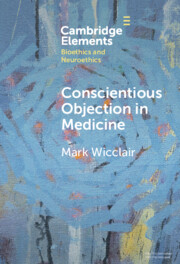Refine search
Actions for selected content:
1 results

Conscientious Objection in Medicine
-
- Published online:
- 12 March 2024
- Print publication:
- 11 April 2024
-
- Element
- Export citation
